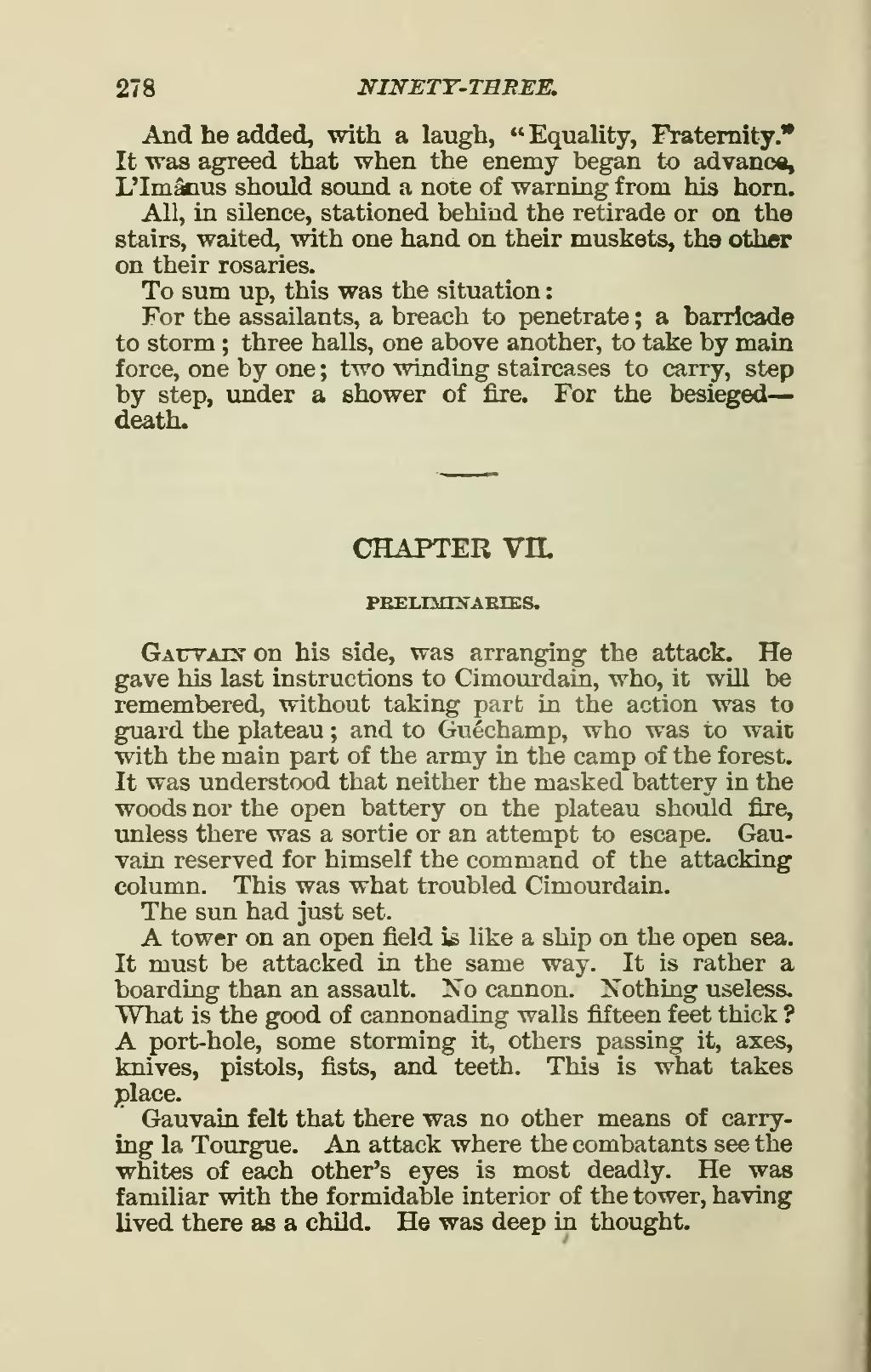And he added, with a laugh, "Equality, Fraternity." It was agreed that when the enemy began to advance, L'Imânus should sound a note of warning from his horn.
All, in silence, stationed behind the retirade or on the stairs, waited, with one hand on their muskets, the other on their rosaries.
To sum up, this was the situation:
For the assailants, a breach to penetrate; a barricade to storm; three halls, one above another, to take by main force, one by one; two winding staircases to carry, step by step, under a shower of fire. For the besieged—death.
CHAPTER VII.
PRELIMINARIES.
Gauvain on his side, was arranging the attack. He gave his last instructions to Cimourdain, who, it will be remembered, without taking part in the action was to guard the plateau; and to Guéchamp, who was to wait with the main part of the army in the camp of the forest. It was understood that neither the masked battery in the woods nor the open battery on the plateau should fire, unless there was a sortie or an attempt to escape. Gauvain reserved for himself the command of the attacking column. This was what troubled Cimourdain.
The sun had just set.
A tower on an open field is like a ship on the open sea. It must be attacked in the same way. It is rather a boarding than an assault. No cannon. Nothing useless. What is the good of cannonading walls fifteen feet thick? A port-hole, some storming it, others passing it, axes, knives, pistols, fists, and teeth. This is what takes place.
Gauvain felt that there was no other means of carrying la Tourgue. An attack where the combatants see the whites of each other's eyes is most deadly. He was familiar with the formidable interior of the tower, having lived there as a child. He was deep in thought.
